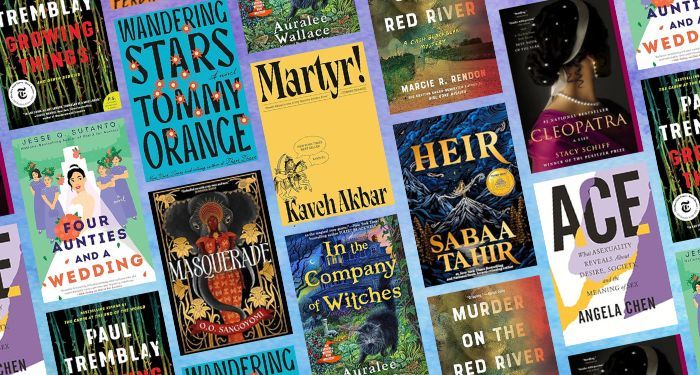7 Tips for How to Post Poetry on Instagram
When I was a freshman in college, I was asked to perform an original poem at a fundraiser for a local museum. After performing, I was elated and baffled by the reception from those listening as I recited. I didn’t feel ready for seeking publication through literary journals (and also did not know much about publishing) and wanted my poems to reach a larger audience. Quickly I realized a solution: Instagram poetry. While I no longer post my poetry on Instagram as my relationship and purpose for writing poetry has shifted, I did gather tips for how to post poetry on Instagram.
From using an app to format poems, to finding the best hashtags, here are seven tips for how to post poetry on Instagram.
1. Keep Your Audience and the Purpose of the Platform In Mind
When sharing your writing, remember your work is accessible to both your grandmother (or don’t even dare contemplate the possibility if your content is of the steamy variety) and potential publishers.
The visibility can be a beautiful thing: you are no longer confined to texting new poems to just your social circle or waiting for a reaction from the followers on your private social media accounts. Suddenly, anyone can read your words. Authors such as Rupi Kaur have used Instagram to their advantage by gathering a large and loyal following on social media.
But it’s also important to realize that some literary journals, magazines, and other publications prefer to accept submissions of poems that have not previously been published. Instagram sometimes, but not always, counts as previous publication. (Check out more about literary magazines versus Instagram here.)
2. Consider Poem Length and Formatting That’s Easy on the Eyes
So your skill with the quill is undeniable, but are you selecting the right poems to share? It’s helpful to choose poems that resonate with others, obviously, but the length of the poem is also a factor.
Because most people won’t want to spend days and days reading through a poem of yours — no matter how stunning — choose wisely. Either a snippet of a longer poem or a short poem itself is the way to go. Then keep the text large enough that no zooming in is necessary for those reading on their phones. The carousal feature in Instagram comes in especially handy for sharing multiple verses without compromising readability.
3. Establish a Consistent Aesthetic (And Use a Handy App)
As you’ve likely noticed, there are certain aesthetic choices poets on Instagram make. Figure out what is both attractive and realistic for you. Do you have beautiful handwriting? Does typewritten text call to you, and do you have access to a typewriter? Do your eyes catch on stanzas presented on a simple background? Are props a yes or a no? Many poets even alternate between a poem in an image, or pair wordless images with writing out the poem in the caption. (Explore some of Book Riot’s favorite Instagram poets for inspiration here.)
Whatever tickles your fancy, choose a certain look and then stick to it with some consistency. When your followers come across one of your posts on their feed, you want them to recognize their favorite poet. For example, with a signature style of scraps of paper with typewritten poems, I can always tell from a quick glance that a post belongs to Tyler Knott Gregson.
For those who do not want to write out or print their poems, make the styling process painless with the app Canva. The app is free — except for a few select images/graphics, which require a paying membership — and has templates, free photos, and fun illustrations. The desktop version is especially easy to use.
4. Use the Many Tools Available
Along with using Canva to format your posts, there are many helpful tools out there to help you figure out how to share your poetry with the widest audience possible.
Keep tabs on sources such as Later, which posts updates on Instagram’s algorithm so that you know how to navigate the platform the most efficiently. If you want to keep up on frequent posting but don’t have endless time to spend on your phone, use a publishing tool like Hootsuite to schedule posts.
One tool within Instagram that can prove extremely helpful is hashtagging. Hashtags are a great way for readers to find your content: to find out what’s trending or what’s new in the world, I often find myself searching through a particular city or book genre’s relevant hashtags. The same can be said for discovering poetry. Use a site that, like Best Hashtags, sifts through the most popular hashtags for any particular social media platform and gives you a list.
5. Interact With Your #PoetryCommunity
When I was summing up the courage to create my poetry account, I reached out to other poets I admired. I found encouragement in asking them — particularly poet Alexa Johansen — questions, finding inspiration in their craft, and learning more about their stories as time went on. I felt like I was part of a virtual community of supportive artists.
My advice is to find and follow other poets and make sure to give them the likes, shares, and comments they deserve. Let them know you are listening and share the poems that are genuinely speaking to you.
On the flipside, and unlike when a poem is printed in a magazine, your readers can comment and interact directly with you. It is so encouraging to find that others are resonating with your dreams and visions. Ask questions in your captions and interact with those who comment to form camaraderie with your followers.
6. Credit Your Work to Keep it Safe
As my artist mother used to say, “Sign your work!” Have you ever watched a reposted video or read a quote that left you wanting more? Perhaps you’re a huge fan of the work, or you want to know what happened next with the singer or writer. It really throws a wrench in the plan when whoever reposted failed to credit the artist and you have no choice but to go into internet stalking mode.
You also do not want others taking your work as theirs (although putting anything on the internet opens up this possibility). Please, for all that is holy, at least protect your work by marking it as yours! Leave your handle, initials, or name somewhere in the image. Crediting your work can be as easy as signing your work as poet Lang Leav does.
7. Revel in the Fact That You’re Sharing Your Art
Amidst the busyness of formatting your poems and responding to your followers, don’t forget to enjoy yourself. Creating and sharing art is no easy feat. Make sure you’re finding joy in making this world a brighter and more beautiful place.
Ready to get started after reading all about how to post poetry on Instagram, but looking for even more guidance? Check out What I Learned in 6 Months on Bookstagram.






